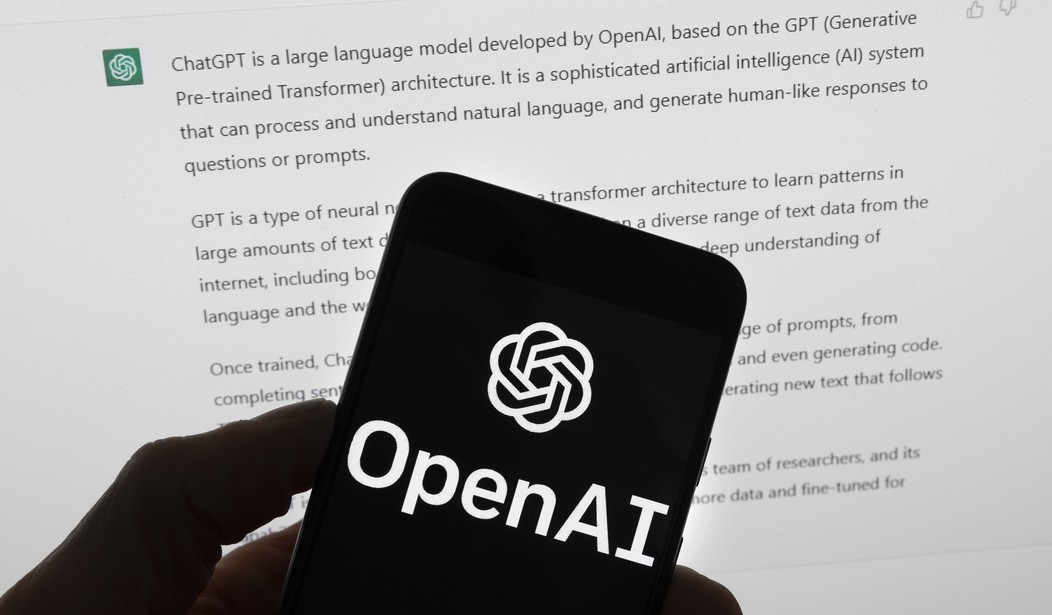The American worker is under siege. Once the backbone of the U.S. economy, middle-class and even upper middle-class professionals are being systematically undercut by two relentless forces: cheaper foreign labor and artificial intelligence (AI).
While corporate executives and policymakers wax poetic about globalization, innovation, and efficiency, everyday Americans are feeling the sting of a labor market that seems increasingly stacked against them.This is something that I am seeing every single day.
At the heart of the issue is a blatant cost-cutting strategy: labeling highly experienced and highly educated U.S. job candidates as “overqualified” in order to justify hiring younger, less educated and cheaper foreign workers on H-1B visas.
Employers pretend this practice is about maintaining “cultural fit” or ensuring “adaptability,” but the reality is much simpler—it’s about wages and the bottom line. A seasoned American professional, with years of expertise and institutional knowledge, expects fair compensation. But to a profit-driven corporation, an equally competent foreign worker willing to accept a lower salary is a more attractive proposition.
Listen, foreign workers aren’t to blame for taking these opportunities—it’s the corporations and policies that make this exploitation possible. H-1B visa holders, many of whom hold only a bachelor’s degree, are treated as a discount alternative to experienced American professionals.
When U.S. workers raise concerns about this undercutting, they’re often dismissed as entitled or unwilling to “adapt.” The truth is, they’re being squeezed out—not due to any fault of their own, but because companies have found a cheaper alternative and they have a responsibility to deliver profits to their shareholders.
Recommended
Adding insult to injury, automation is compounding the crisis. If American workers aren’t being replaced by H-1B visa holders, they’re being replaced by algorithms. AI tools are rapidly taking over jobs that once required human intelligence and experience.
Customer service roles have been slashed in favor of chatbots. AI-driven analytics platforms are replacing financial analysts. Even creative fields like marketing and journalism are seeing their work outsourced to machine-generated content.
The narrative from corporate boardrooms is that this is all part of “progress.” But to the average American worker, it feels more like an ambush. Employers who once valued human expertise, creativity and critical thinking are now more interested in efficiency, scalability, and cost-cutting.
After years of being told to study hard, gain experience, and build a career, workers are realizing that the rules have changed almost overnight it seems. The so-called “stable” career path is no longer stable or viable. What matters now is who will work for less—or whether the job can be done by an algorithm.
The erosion of job security is particularly devastating for older workers. A worker with 20 or 30 years of experience is often dismissed as “overqualified”—a thinly veiled excuse to replace him or her with someone younger and cheaper. Meanwhile, AI-driven hiring processes scan resumes for “red flags,” often filtering out candidates with too much experience or higher salary expectations.
Also, let’s not forget the broader economic implications. When American workers lose their jobs to cheaper foreign labor or automation, they don’t just suffer individually—the economy suffers collectively. The small businesses and restaurants they support suffer.
Declining wages mean less consumer spending, which in turn stifles economic growth. Fewer stable jobs mean fewer homebuyers, fewer investors, and less economic mobility. The very foundation of the American Dream is being chipped away, one outsourced job at a time.
So how do we fix this?
Well, I think we can start with putting pressure on policymakers to take a hard look at the abuse of H-1B visas. Why are so many getting approved? Why haven’t we increased the minimum salary employers have to pay H-1B visa workers despite the recent surge in wage push inflation? Do we need the H-1B visa anymore at all? Why not just expand the O-1 “extraordinary” ability program?
While the H-1B program was originally intended to fill gaps in highly specialized fields, it’s increasingly being used as a loophole to hire cheaper labor. Employers must be held accountable for prioritizing cost-cutting over fair hiring practices.
Next we must establish stronger protections for American workers in the face of automation. AI is here to stay, but its integration into the economy must be managed responsibly. That means investing in retraining programs, enforcing stronger labor protections, and ensuring that technology enhances human work rather than replaces it entirely.
This is not just an issue of helping experienced and educated American workers keep their jobs. It’s also about safety and American exceptionalism. Look at what China just achieved with Deepseek, which performs as well as better than OpenAI. This is a giant economic statement, even if the cost savings on Deepseek are exaggerated. Deepseek was created by Chinese people in China. DeepSeek is what happens when a nation invests in and believes in its own people.
Finally, American workers must push back against the false narrative that being “overqualified” is a flaw or even a logical label. Experience and expertise should be valued and rewarded, not discarded. The fight for fair wages and job security isn’t just about individuals—it’s about preserving the integrity of the U.S. labor market.
If we continue down this path unchecked, the consequences will be severe. A nation that fails to protect its natural born workforce will ultimately fail to sustain its prosperity.
Dr. Isaiah Hankel, Ph.D, is a 3X Best-Selling Author and CEO of www.Overqualified.com
























Join the conversation as a VIP Member